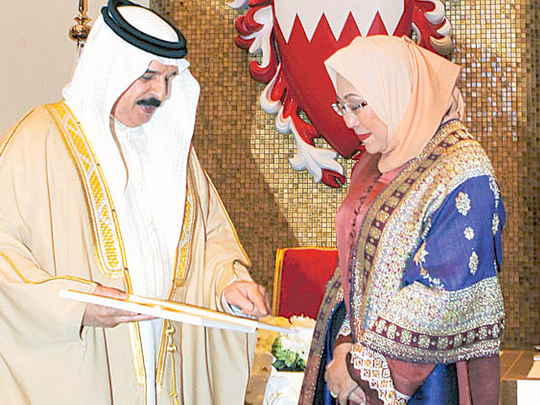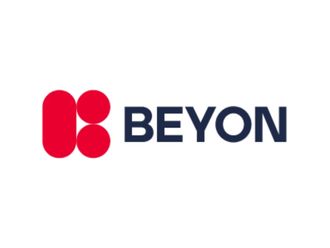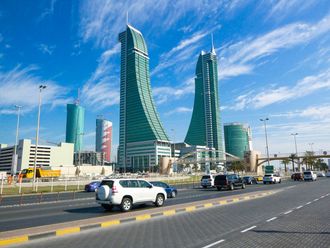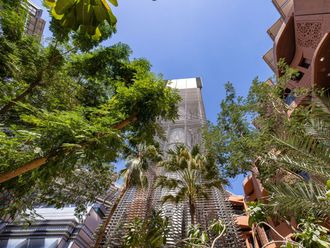
Manama: Jemilah Mahmoud, the Malaysian doctor who has won the first Eisa Award for Service to Humanity, has a dream: To establish a centre that can facilitate new models and approaches and focus on crisis prevention, peace and reconciliation.
The centre should also encourage more leadership from the global south to place affected populations at the core of their efforts, the laureate, a vivacious symbol of Malaysia’s new affirmation of impressive success and gender emancipation, said as she shared her vision while accepting the newly-established biennial award.
It was in 1999 that Jemilah, whose life today is profoundly marked with acts of compassion and bravura, embarked on her unexpected journey in the humanitarian world.
“I am from Malaysia, a multi-ethnic and multi-faith nation with citizens who live peacefully in a culture based on tolerance, co-existence and mutual respect,” she told the audience who attended to watch her receive the award from King Hamad Bin Eisa Al Khalifa. “We have come a long way to become a middle-income country with more professionals including myself. As a doctor, it hurt me to see suffering all over the world – whether arising from conflict and war or the aftermath of natural disasters.”
However, what hurt here her even more was that not a single person or organisation from the non-western world was reportedly involved in the forefront of humanitarian action.
Therefore, for Jemilah, the Muslim woman, it was time for action.
“I questioned what development meant for a young nation like ours, and deep down I believed no nation or peoples could consider themselves developed without feeling compassion for others - regardless of race, religion, culture or boundary. In other words, it is not about charity but about solidarity and responsibility - to ensure the rights of those who are faced with crises are met in a way that recognises their efforts and potential, that strengthens them and goes beyond aid and relief,” she said.
Her endeavours led to the establishment of MERCY Malaysia, an organisation which she founded and headed for ten years until 2009.
“It is a unique organisation, emanating from the global south working in more than 15 countries, with a commitment to high standards and accountability, working with communities and host governments from prevention, preparedness and mitigation to response and longer-term recovery,” she said.
Jemilah added that she was privileged to work with highly committed colleagues and volunteers and that she was supported by a wide range of stakeholders from public and private sectors. Her status as a woman was a great advantage.
“Being a woman working in humanitarian crises has given me the golden opportunity of access to other women in crises, to their homes, their families and to view things from their own unique perspective and culture.”
Ten years later, she handed over the reins to continue her learning, commitment and influence in the humanitarian sector through the United Nations, academia, advisory roles to numerous international boards and agencies, and a fellowship at Khazanah Nasional Berhad, Malaysia’s sovereign wealth fund. “My goal is to influence all actors to play a role beyond humanitarian assistance - to focus on reducing vulnerability to crises, whether conflict or natural hazard related,” she said. “We need new approaches and models to achieve this. We need to listen to the people affected by crises, build trust where it has been lost, recognise their concerns, aspirations and strategies, and facilitate processes and build genuine partnerships and find solutions together. And everyone has a role to play.”
Despite all the praise and applause, Jemilah remained humble and modest.
“I stand here applauded by all of you for what you see as a woman of courage and dedication, yet I assure you that what I have done is nothing compared to what I have received doing this work,” she told the leaders, senior officials and diplomats listening to her. “How can I be more courageous than a young 10 year-old Acehnese girl in a camp we built and managed. She had not only lost her mother but instantly became responsible for two younger siblings. She would always smile when we met, and rush to her tent insisting on offering me a drink or some little food she had. Despite their circumstances, people with so little have usually the most to give. She is one of many people who have enriched my life, taught me humility, justice, patience and to be grateful for the opportunity to help,” she said.












